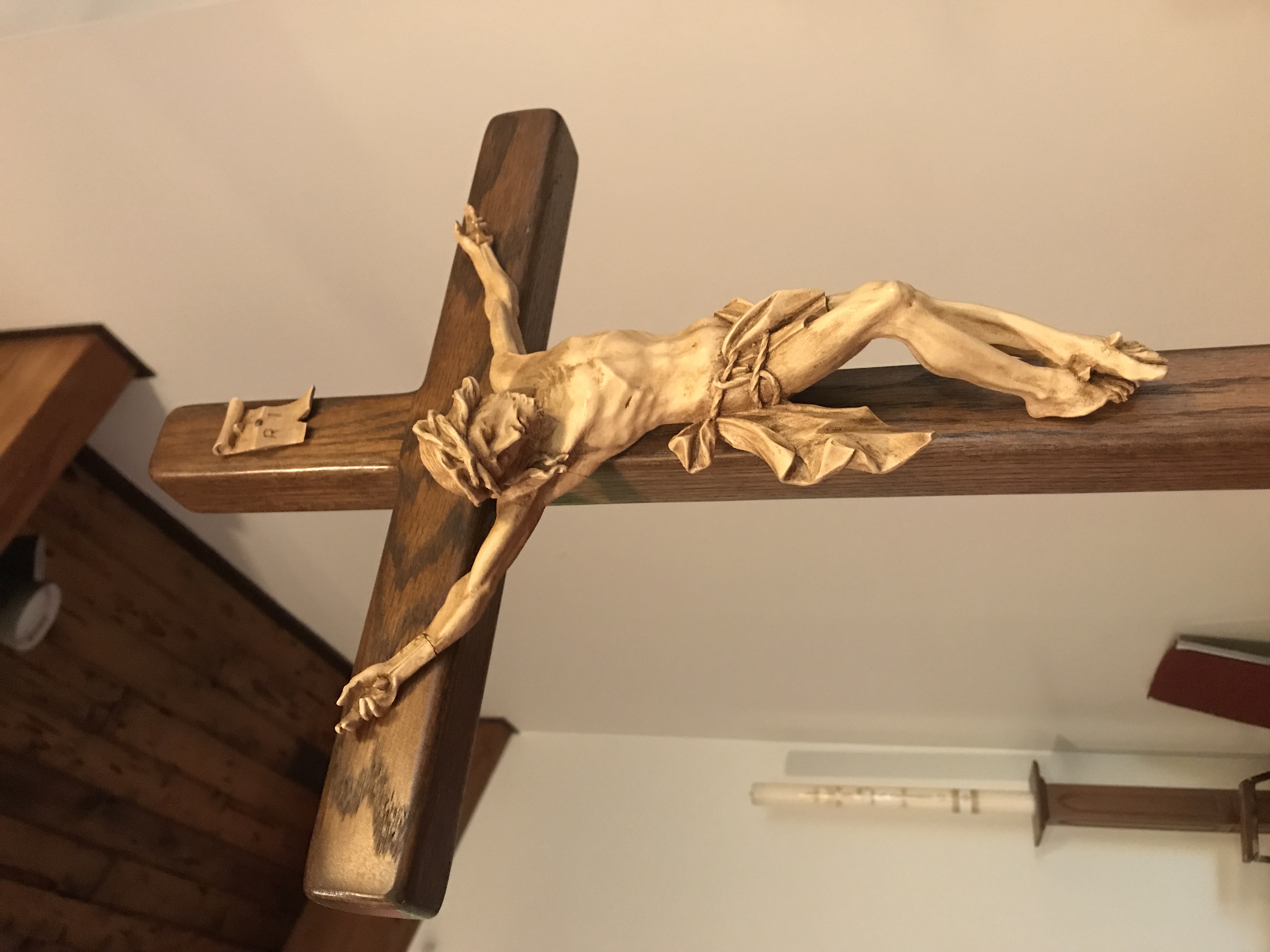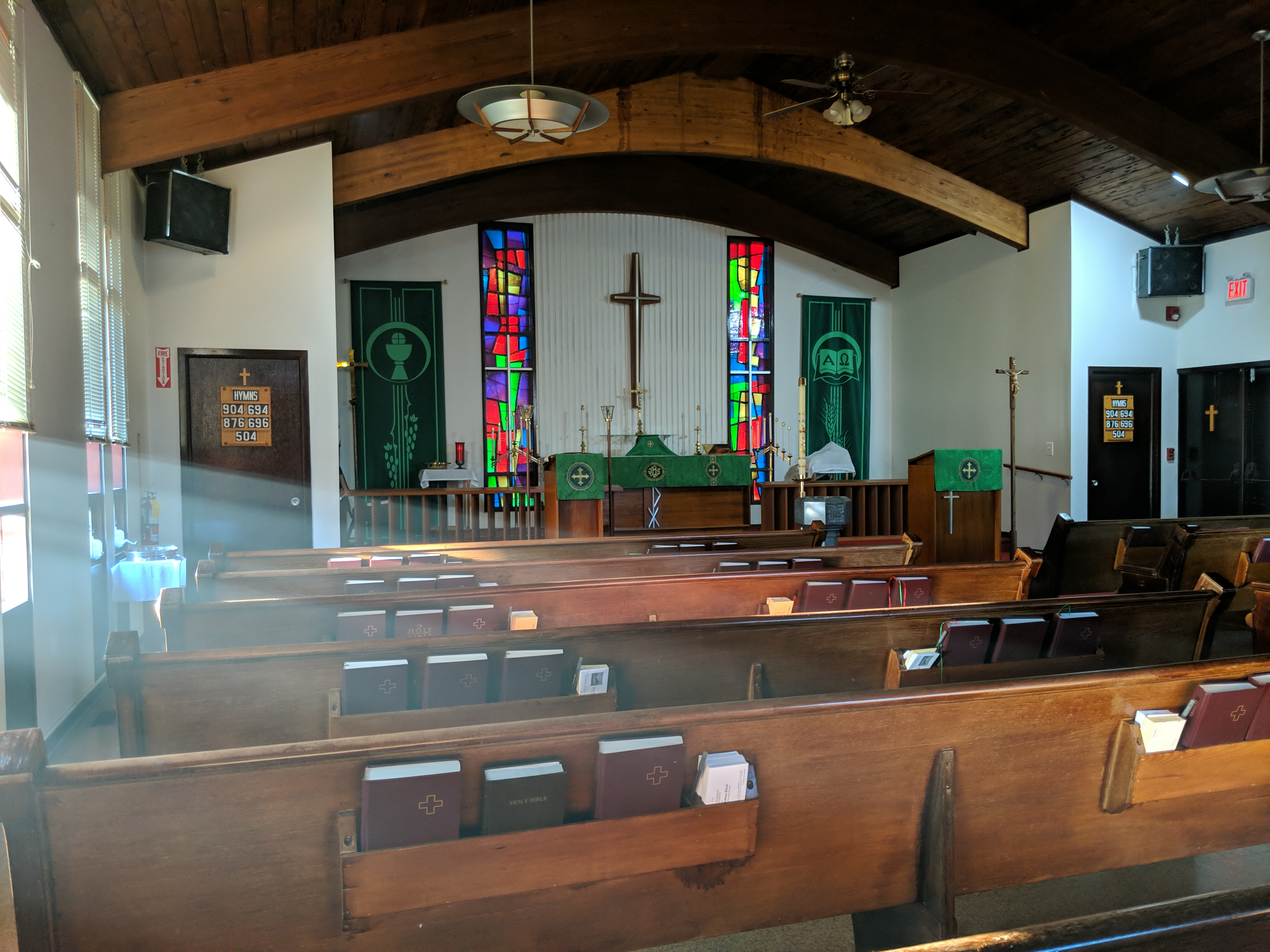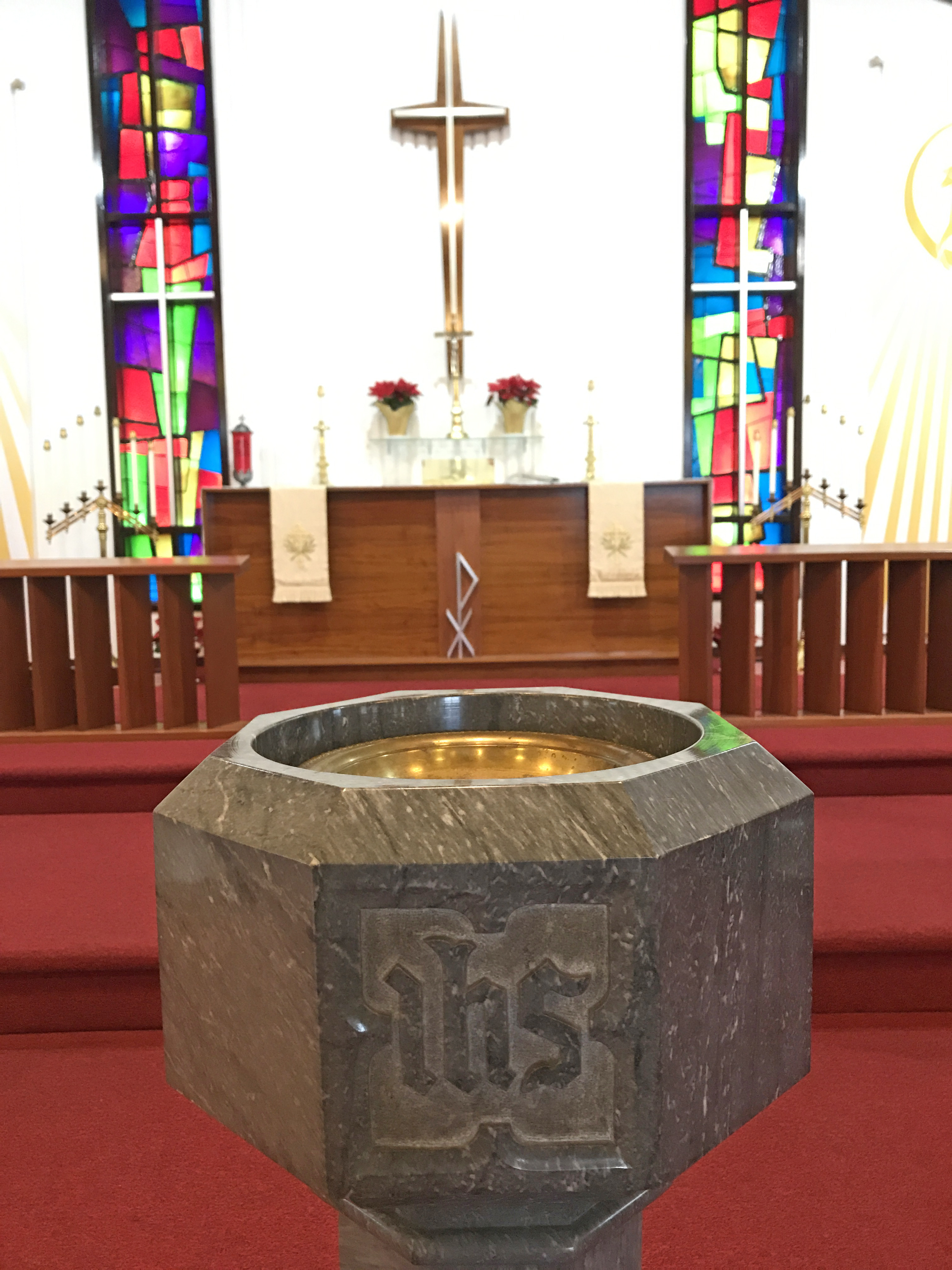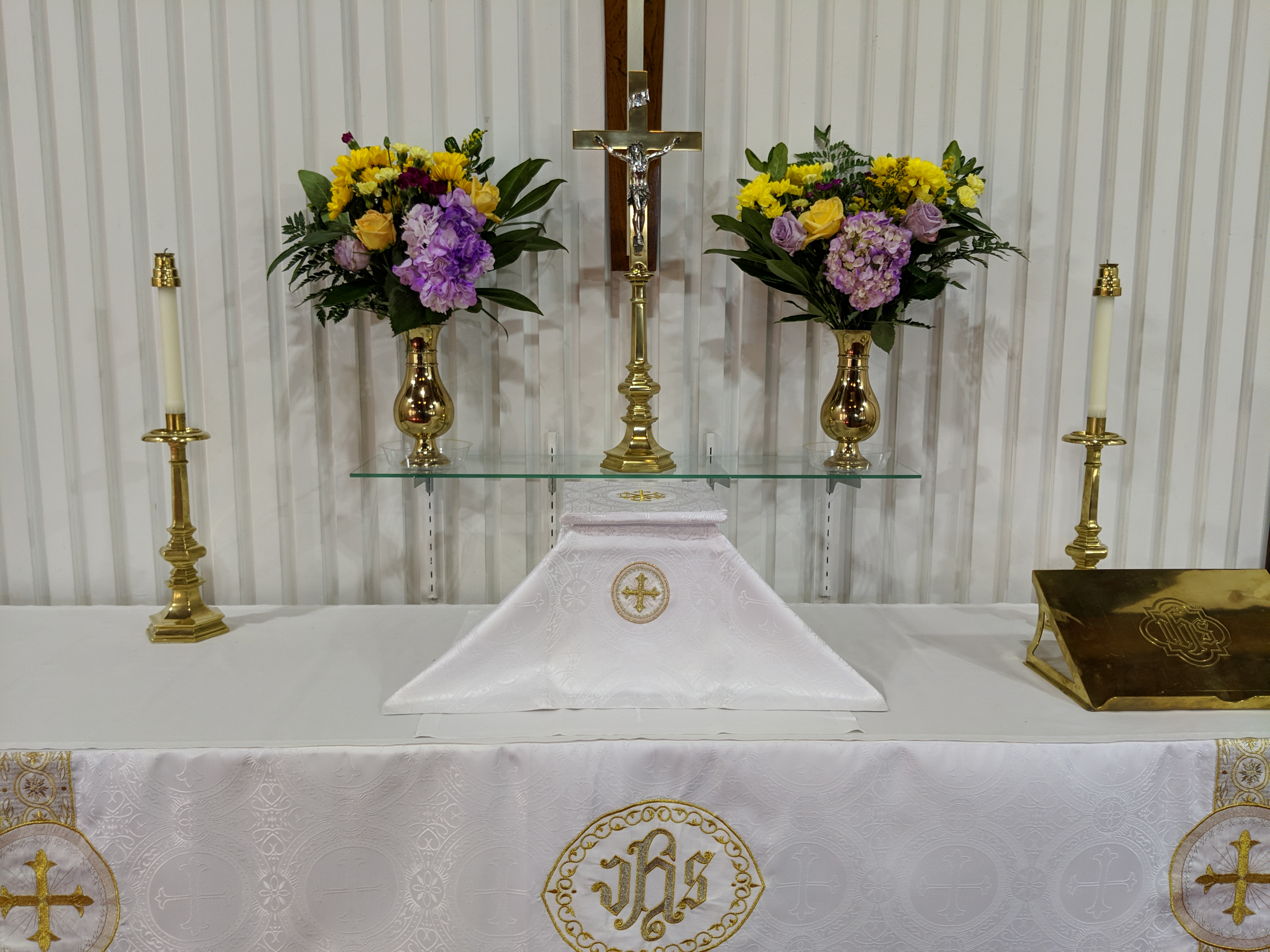Quinquagesima – Sunday 11 February A✠D 2024
✠ Psalmody: Psalm 18:5-6a, 49;18:1-2a, 27, 32;77:14-15;100:1-3
✠ Lection: Isaiah 35:3-7;1 Corinthians 13:1-13;St. Luke 18:31-43
In the Name of the Father and of the ✠ Son and of the Holy Spirit. Amen.
By this day’s end, you will have had but a mere 11 Sundays in which to prepare for your coming King, to celebrate His Holy Nativity, to follow the Magi by faith, to ascend to the Mount of Transfiguration with the disciples, and to prepare for the journey of Lent that will bring us to Jerusalem with Jesus. A late start to Advent followed by an early Easter has given us one of the most rapid beginnings to the Church Year that we are likely to experience. Just as the Holy Word and Divine Lord upon Whom our traditions and practices seek to follow and glorify, the slight variations of timing year-to-year give us more than garden variety in our life of Christian worship.
These three Sundays of Pre-Lent lend a gradual, softer turn from the highs of Christmas and Epiphany toward the purpose and discipline of Lent. The Church is prepared for Ash Wednesday by her Bridegroom Himself as He leads her up to Jerusalem. It is a journey He must take and She with Him. Behold, we are going up to Jerusalem, and all things that are written by the prophets concerning the Son of Man will be accomplished. We thank God for much in hearing our Savior say these things. We thank God that He didn’t keep Himself from being despised and shamed upon the cross. We thank God that guarded under the protection of His wing, we may follow Him in a path of suffering with eternal confidence that beyond its end, we shall be raised as He is, for no created being nor the evil wiles and attempts of a wicked world can separate us from the love of Christ.
In recent weeks in Bible Study, we’ve been spending time in the Large Catechism’s teaching on the sacraments; Holy Baptism and the Sacrament of the Altar. Luther employs a certain technique in explaining them both; one of which we’ll make use of now. To foster understanding about each of the sacraments, he asks three things: What is it? What benefits does it bring? Who receives it?
Our Gospel this morning drops us into the midst of Jesus and His disciples as He has taken them aside to tell them again of what was to become of Him, which was essentially His whole purpose in descending to us from the everlasting days. Being that it’s chapter 18 should already give hint that we’re nearing the focus, the climax, the completion of our Lord’s earthly Ministry in the Lukan account. The Gospels have been described by some as “Passion stories with a preface,” because many of the thoughts and words painted within them draw the eye and heart toward His suffering, death, and resurrection, for accomplishing those tasks are exactly why the Father sent forth His only-begotten Son.
How is it that suffering and death can be said to be the highlight, the very focal point, of what are to be man’s most cherished stories of all time and possession? It is because of what lies in the answer to the question, what is it? Or, better put for this context, Who is it, or rather Who is He? It is Jesus, the good Sunday School answer that shouldn’t be mocked, because we are not to treat Him as a Sunday School god, meaning don’t think that continually hearing about Jesus is only for the children. Haughtiness and pride are not characteristics that the Scriptures commend us in having. In pride, we think I’ve heard this about Jesus already. I know it. What time’s kickoff again? Hear the pride in that? Jesus Christ is The Almighty God Himself, which means there is more about Him than our minds can come to know; much less our fallen minds; much, much less our prideful, fallen minds.
Who is He? Sir, ma’am, you know. He is Jesus of Nazareth, yet fully God. But what He is telling us and the disciples isn’t merely that fact. By this point in the Church Year, you should have no doubt, by His revelation as the King coming again in glory, by it being the Eternal Word made flesh, by His glory shining radiantly at the Transfiguration, that He is true God. This poses an irreconcilable conundrum in those who don’t have faith, in those who are in and of the world, because in the mind not enlightened by the grace of the Holy Spirit, one of the common objections to the Kingdom of God is that if He is Who His worshippers say that He is (true God), then how is it that He was that meek, lowly, humble Man that the Roman governor pinned to cross? What kind of God is that? The short answer is that He’s the kind of God Who loves us and conquered death by death, an idea that is foolishness to the darkened heart and mind, for the message of the cross is foolishness to those who are perishing, but to us who are being saved it is the power of God.
But in pondering upon the beauty of the Son Who has set you free from death and the devil, let us consider just how stunning it is that it is God Himself doing this, experiencing this, suffering this, all-the-while He possessed full divine power and majesty to not only call down legions of angels, but to annihilate all His enemies with a single word from His mouth. Instead, He was oppressed and He was afflicted, Yet He opened not His mouth; He was led as a lamb to the slaughter, And as a sheep before its shearers is silent, So He opened not His mouth. Instead of speaking in power to be kept from the slaughter, the incarnate lips of the Almighty One spoke to the disciples these words concerning Himself, “He will be delivered to the Gentiles and will be mocked and insulted and spit upon. They will scourge Him and kill Him. And the third day He will rise again.” All this shows what is called Christ’s state of humiliation, meaning that He, being still in full possession of all the attributes, power, knowledge, and abilities of God, refrained from the full and constant use of them. Who is He? He is the One Who voluntarily and intentionally did not make use of His divine power and majesty and opened not His mouth as He was delivered to the Gentiles, an indication that His death would come by their cruel means of a Roman cross.
What benefits does it bring? What are the benefits of Christ’s state of humiliation, in His refraining from exercising His might as the One over Whom no one is mightier? This is more detail about your Savior for you to admire, for you to respond to with joy, thanksgiving, awe, and worship. The benefit of Jesus Christ coming in this way was in our necessity that He must. He refrained from using His power so that He might descend to the bottom of the pit Himself, the very place in which we were held captive in death, so that He might bring us up out of it by the means of death…His. In order to redeem us from the pit by means of His most holy obedience and sacrifice in our place, He renounced carrying out the task in the fullness of His divine nature, instead living out a perfect, obedient life in His human nature, so as to credit it to you. If He would’ve lived it out in the fully-exercised power and majesty of God, He would’ve remained high above us. Instead, He refrained from it so that He might suffer and die for the life of the world, leading the way to life through the path of death. Thus, we follow Him confidently up to Jerusalem and even to our own graves.
Who receives it? Who receives the benefit of Christ suffering, dying, and rising again? Who receives the benefit of the Eternal Son living a mortal’s life? For this answer, we must look at the rest of the Gospel text, for by it God shows the divine inversion, the beauty in which He brings salvation to sinners. The disciples heard the words coming from Jesus’ mouth, now for the third time, predicting His passion, but they understood none of these things; this saying was hidden from them, and they did not know the things which were spoken. Their eyes had literally beheld many things by this point; threats, exorcisms, miracles. Yet, though they had physical sight, they did not have the spiritual sight to see, to understand that God Himself, in His state of humiliation, would be glorified by being hung unto death on a cross. And that the third day He would rise again.
So, on their way to Jerusalem, whom do they encounter? A blind man; one who cannot see with his eyes and yet sees Who Jesus is. We know that his physical ears and mouth work. Faith comes by hearing and hearing by the Word of God. With the heart one believes unto righteousness, and with the mouth confession is made unto salvation. So, when this blind man heard a multitude passing by, he asked what it meant. So they told him that Jesus of Nazareth was passing by, a Name and title that in your ears by now is definitely not insignificant! So, the blind man heard and he cried out, saying, “Jesus, Son of David, have mercy on me!” More recognition for you to lay ahold of as the man called not upon the Man of Nazareth, but upon the Son promised long ago to the great Bethlehemite king; Jesus, Son of David. In this, we hear faith speaking, responding, because the man isn’t merely confessing information, but belief, joyous belief that the ears of the Promised One would incline toward him and hear his voice, his pleas for mercy.
Jesus asked him, saying, “What do you want Me to do for you?” He said, “Lord, that I may receive my sight.” This isn’t the desire of a man to regain his sight so that he may go fill his eyes with all sorts of filth. This is true, living faith calling out to its Object to make Himself known, even if but a little bit. It is faith asking that it may see the glory of the One in Whom it trusts by doing something that was promised of old that He’d do. This means that this is far more than a blind man wanting to receive his sight just for the sake of having sight. This is faith calling out to Jesus of Nazareth to perform the one miracle that is distinct to the ministry of the Promised Messiah, the Anointed One, the Son of the anointed King David. No prophet of old healed blindness, for it was a promised marker of the One Who would give sight to blinded hearts so that they may see the One by Whom their salvation was coming to be won.
The blind man recognized Jesus of Nazareth to be the Holy One of heaven in Whom dwells infinite mercy; mercy that will do away with blindness forever in the resurrection of the dead. The miracle of healed eyes in this age is but a brief foretaste of the eternal Bliss yet to come. And to Jericho it had come. To Jerusalem it shall go, so that eternal God restraining Himself deep down into your pit may be to your benefit in raising you up eternally with Him out of it. He is the One Who will wipe away all ills, for He was mocked, insulted, spit upon, scourged, and killed for you. And the third day He rose again, according to the Scriptures. By grace, He bestows this benefit upon those Who believe in Him, upon those Who have faith, upon those who see with more than the eyes in their head that He is Who He says He is and has done what the Scriptures say He has done and yet still will do. That’s who receives this Gift, this Jesus of Nazareth, this Son of Man, this Savior of the World. Receive your sight and see Him; believe Him; your faith in Him has saved you.
In ✠ Jesus’ Name. Amen.












Comments are closed, but trackbacks and pingbacks are open.